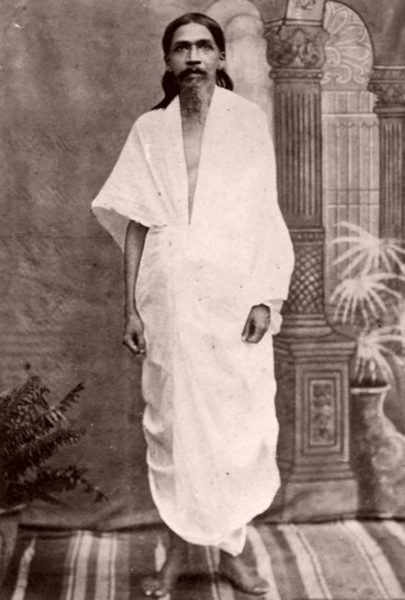Publisher’s Note
Rishabhchand, the author of this book, has to his credit a number of other books, all of them shot through and through with the Light and Presence of Sri Aurobindo and the Mother. One cannot fail to perceive in them an unusual harmony of the intellect’s clear thinking, intuition’s deep penetration and the spirit’s permeating suffusion. They stand out impressively against the background of innate humility and colour gracefully the flow of his style and language. He wrote it indeed as one inspired by the Mother and the very fact of its serial publication in the “Bulletin of Sri Aurobindo International Centre of Education” (from August 1960 to February 1971) carries in it Her seal and sanction. The author had a vaster plan in his mind but that was not probably in the plan of the Divine and so remained short of execution.
Introduction
“Whenever there is the fading of the Dharma and the uprising of the Adharma, I loose myself forth into birth.”
— The Gita, Chapt. IV. 7
“There are moments when the Spirit moves among men and the breath of the Lord is abroad upon the waters of our being; there are others when it retires and men are left to act in the strength or the weakness of their own egoism. The first are periods when even a little effort produces great results and changes destiny; the second are spaces of time when much labour goes to the making of a little result. It is true that the latter may prepare the former, may be the little smoke of sacrifice going up to heaven which calls down the rain of God’s bounty.
Unhappy is the man or the nation which, when the divine moment arrives, is found sleeping or unprepared to use it, because the lamp has not been kept trimmed for the welcome and the ears are sealed to the call. But thrice woe to them who are strong and ready, yet waste the force or misuse the moment; for them is irreparable loss or a great destruction.
In the hour of God cleanse thy soul of all self-deceit and hypocrisy and vain self-flattering that thou mayst look straight into thy spirit and hear that which summons it. All insincerity of nature, once thy defence against the eye of the Master and the light of the ideal, becomes now a gap in thy armour and invites the blow. Even if thou conquer for the moment, it is the worse for thee, for the blow shall come afterwards and cast thee down in the midst of thy triumph. But being pure cast aside all fear; for the hour is often terrible, a fire and a whirlwind and a tempest, a treading of the winepress of the wrath of God; but he who can stand up in it on the truth of his purpose is he who shall stand; even though he fall, he shall rise again; even though he seem to pass on the wings of the wind, he shall return. Nor let worldly prudence whisper too closely in thy ear; for it is the hour of the unexpected.”
— Sri Aurobindo




About Savitri | B1C1-09 Advent of the Divine Mother (p.4)